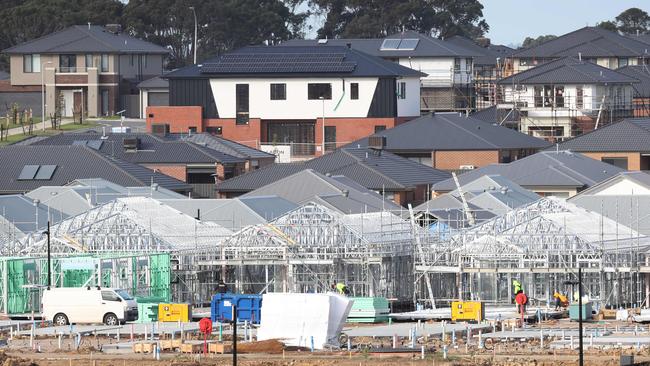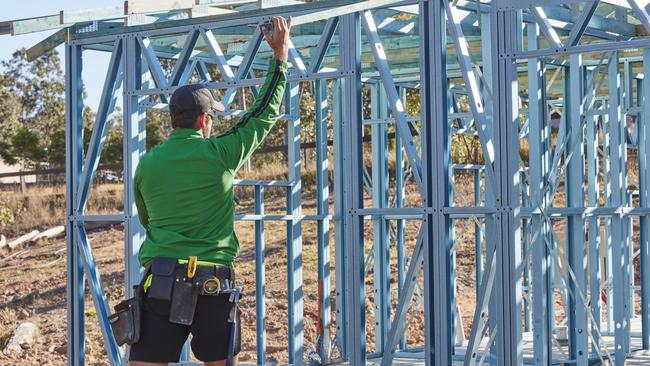Costs in construction set to peak but consumers warned of lingering headaches from inflationary and international pressures
The construction industry is bracing for more financial challenges as a new report reveals when the sector’s “price escalations” are set to peak. Explore some of the building costs for yourself.

Victoria
Don't miss out on the headlines from Victoria. Followed categories will be added to My News.
Construction sector price pain that has sent dozens of companies to the wall is set to peak this year – but don’t expect new home and renovation costs to fall any time soon.
A global report on construction sector costs shows that while “price escalations should peak this year and moderate in 2023” there are still strong headwinds buffeting the industry.
In Australia and New Zealand, labour costs due to competition for skills, combined with present global material cost hikes, are tipped to cause lingering headaches.
Over time the cost of steel and other materials is set to stabilise, but the Property Council of Victoria has warned about “baked in costs” arising from companies forced to factor extra risk into contract prices.

The annual analysis by global consultancy business Turner & Townsend, which assesses 88 key markets around the world, says construction costs moved from sixth to first place this year in terms of industry challenges – up from 12th place in 2020s report.
Lead times smashed by supply chain delays are the next biggest concern, followed by labour shortages.
This is particularly strong in Australia and New Zealand, where skilled migration losses during the pandemic has seen labour costs soar 28 per cent since 2019.
Despite this, Melbourne rates mid-table in terms of how expensive it is to build property overall, at almost $4000 AUD per square metre.

San Francisco and New York City top the list at more than $6700 AUD per square metre, while Sydney and Perth are also more expensive than Melbourne.
“Prices of steel, electrical cabling, roofing materials, timber, and plastic pipes have all increased, and with lump sum contracts still common the risk to lead contractors is increasing,” it says.
This saw even the biggest firms in Australia – such as home building giant Metricon – argue for changes to fixed price contract clauses that would allow some costs to be passed on to consumers.
Victorian executive director at the Property Council of Australia, Danni Hunter, said consumers would have to buckle in for a while due to “baked in” costs from current inflationary and international pressures.
“A big part of this is about risk and confidence,” she said.
“Yes there’s a cost for materials but now (builders) are having to cover the risk of not having those materials.”
Although governments can’t solve the issues overnight, Ms Hunter said they could help address the situation by improving tax settings and welcoming more investment to Australia, as well as speeding up visa processings to allow for smoother passage by skilled migrants.





